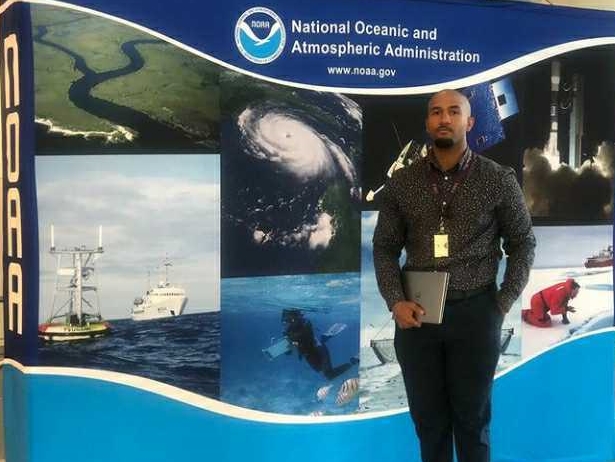Our planet is an amazing place.
April 22 is Earth Day!
This year we celebrate with the theme, Invest in Our Planet.
RIVA’s commitment to the environment started long before incorporation in 2009. In 1991, SM Resources Corporation (SMRC) was founded with the catchphrase, “We embrace science to engineer a smarter, more sustainable world.” SMRC established themselves as a key contractor at NOAA with an impressive portfolio of work spanning decades. In 2019, RIVA acquired SMRC, blending RIVA’s strength in technology with SMRC’s unmatched authority in weather and ocean sciences. Last year marked our 30th anniversary as partners with The National Oceanic and Atmospheric Administration (NOAA).
NOAA plays a crucial role in documenting and responding to various environmental changes and conservation efforts. National Environmental Satellite, Data, and Information Service (NESDIS) provides real-time environmental data from satellites and other sources to promote and protect the environment.
RIVA has teams of engineers and program managers on the ground at NOAA sites across the nation creating innovative solutions that blend science and technology in support of NOAA’s mission, ensuring a more “Weather-Ready Nation,” healthy coasts, resilient coastal communities, and adapting and mitigating climate change.
Joint Polar Satellite System (JPSS) are the nation’s advanced series of polar-orbiting environmental satellites circling the Earth from pole to pole and crossing the equator 14 times daily providing full global coverage twice a day. Data provided by the satellites is used by NOAA’s National Weather Service to increase the accuracy of forecasts, predicting severe weather events 3-7 days in advance. RIVA Solutions Architect, Paul Black (pictured below) and Satellite Product Analyst, Katie McCormick, proudly support JPSS Program Office and look forward to the JPSS-2 launch later this year.

In addition to JPSS, a team of RIVA engineers worked in collaboration with NASA on the recent launch of the GOES-18 satellite which launched into orbit on March 1, 2022. GOES-18 will track destructive wildfires, lightning, Pacific Ocean-based storms, dense fog, and other hazards that threaten the U.S. West Coast, Hawaii, and Alaska. It will also monitor solar activity and space weather to provide early warnings of disruptions to power grids, communications, and navigation systems.
RIVA is a proud NOAA partner supporting mission work to protect our planet on Earth Day and every day! Keep up with our exciting work on the blog and catch the latest RIVA news on social media.





